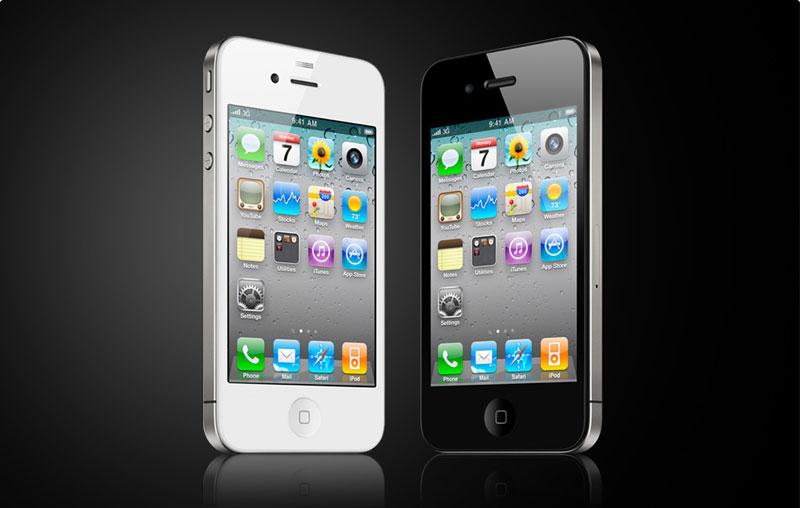Analyst Gene Munster with Piper Jaffray said Friday he remains comfortable with his estimate of 16 million iPhone units sold in the June quarter, despite Google's announcement on Thursday that Android activations are now greater than 550,000 per day. The search giant revealed in its quarterly earnings report that total Android activations for its June quarter were about 50 million units, up 57 percent quarter over quarter.
For comparison, Munster has projected Apple will have activated 29 million iOS-powered devices in the June quarter, including the iPhone, iPad and iPod touch. That would be an increase of just 2 percent quarter over quarter.
"Apple's numbers are deceivingly low given the shift in timing of the iPhone upgrade," Munster wrote in a note to investors. "We believe iOS devices would have been up ~20% (quarter over quarter) if iPhone 5 had shipped in June."
He believes there are two clear winners in the growing smartphone market with Google's Android and Apple's iOS. And in his view, Android activations are evidence of how significant that growth is, which is a trend that will benefit Apple and sales of its iPhone.
Munster also noted that Android is available on multiple devices in various configurations from a variety of hardware manufacturers. In contrast, the iPhone and iPad lineup is extremely limited, which makes a direct comparison somewhat unfair.
He also said that Android appears to be having great success in prepaid emerging markets, while Apple has not seen as strong of a performance in those countries. He does not, however, expect that Apple will introduce a new low-end iPhone this year, as some others have predicted.
Instead, Munster sees Apple shifting previous-generation iPhones into emerging markets in the next year. That aligns with one report that claimed Apple will keep around its iPhone 3GS, first released in 2009, after the debut of a fifth-generation iPhone this year.
When that fifth-generation iPhone is released this year, Munster expects to see a "huge spike" in iPhone sales in the September quarter. In that period, he sees total sales reaching 21 million.
 Neil Hughes
Neil Hughes







-m.jpg)






 Brian Patterson
Brian Patterson
 Charles Martin
Charles Martin


 Malcolm Owen
Malcolm Owen
 William Gallagher
William Gallagher
 Christine McKee
Christine McKee
 Marko Zivkovic
Marko Zivkovic









167 Comments
There can be only one. The mobile pie is actually big enough for 3-5 successful and highly profitable platforms.
I think we could have over 30 million iPhone, iPod Touch, iPad and AppleTV devices activated for this quarter. That's only 330,000 activations per day but that's the bulk of the industry's profit.
If anything I think Android users should thank Apple for creating a new road and settling the primitive market that for so long was occupied by the indigenous feature phone.
There can be only one. The mobile pie is actually big enough for 3-5 successful and highly profitable platforms.
Agreed, although I'm very suspicious of the 550,000 activations per day figure since it can't be verified by anyone else - and Google refuses to provide any sales figures to back it up.
Apple SOLD 16 million iPhones in the quarter and Google claims 50 million activations. Does anyone really believe that they sold 3 Android phones for every iPhone? Based on what I'm seeing in the real world, that doesn't seem remotely plausible.
If Google were being honest, they're report how many phones were sold (and don't tell me they don't know - they get a record of how many Android licenses are issued each quarter). Or tell us how many activations are counted per phone. I'll bet the number is significantly greater than 1.
Don't compare apples and oranges.
With 10/90 Android rule, 1 good Android and 9 craps & turds, it's not compelling enough for developer to develop on Android.
There can be only one. The mobile pie is actually big enough for 3-5 successful and highly profitable platforms.
I think that's bad business for Android. For Android to be desirable to consumers, devs, and vendors Android needs to have a strong dominance. It's the single vendor OSes that can be highly successful with a slice of the pie.
Part of the reasoning is that Android, just like Windows first competes against all the vendors within their marketshare slice. This ultimately weakens the profit that can be had by a single vendor and will inevitable trickle down to devs and users in many negative ways.
Windows has about 95% worldwide OS marketshare but the leading PC vendor, HP, only has around 20%. Imagine if they had that 20% taken from only 50% Windows marketshare.
Android needs to figure out how to get on top or risk a mass exodus from vendors to the safer and more profitable options.